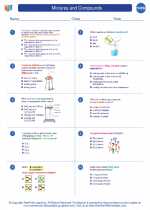Endoparasites
Endoparasites are parasites that live inside the body of their host. These parasites can be found in various organisms, including humans, animals, and plants. They can cause a range of health issues and diseases, and it's important to understand their characteristics and how they can be controlled.
Types of Endoparasites
There are several types of endoparasites, including:
- Protozoa: Single-celled organisms that can cause diseases such as malaria and giardiasis.
- Helminths: Worm-like parasites that include tapeworms, roundworms, and flukes.
- Platyhelminthes: Flatworms that can be further categorized into tapeworms and flukes.
Life Cycle of Endoparasites
Endoparasites have complex life cycles that often involve multiple hosts. For example, the life cycle of the Plasmodium parasite, which causes malaria, involves both mosquitoes and humans.
Effects on Hosts
Endoparasites can cause a variety of symptoms in their hosts, including digestive issues, anemia, and organ damage. In severe cases, they can even be fatal.
Prevention and Treatment
Preventing endoparasitic infections involves measures such as maintaining good hygiene, avoiding contaminated food and water, and using insect repellent to prevent insect-borne parasites. Treatment typically involves antiparasitic medications that target the specific type of endoparasite.
Study Guide
When studying endoparasites, it's important to focus on the following key points:
- Understanding the different types of endoparasites and their characteristics.
- Learning about the life cycles of common endoparasites and how they infect their hosts.
- Recognizing the symptoms and health effects of endoparasitic infections.
- Exploring the various methods for preventing and treating endoparasitic infections.
◂Chemistry Worksheets and Study Guides High School. Mixtures and Compounds

 Worksheet/Answer key
Worksheet/Answer key
 Worksheet/Answer key
Worksheet/Answer key
